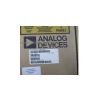AD8251: Features: `Small package: 10-lead MSOP`Programmable gains: 1, 2, 4, 8`Digital or pin-programmable gain setting`Wide supply: ±5 V to ±15 V`Excellent dc performanceHigh CMRR 96 dB (min), G = 8Low gain...
floor Price/Ceiling Price
- Part Number:
- AD8251
- Supply Ability:
- 5000
Price Break
- Qty
- 1~5000
- Unit Price
- Negotiable
- Processing time
- 15 Days
SeekIC Buyer Protection PLUS - newly updated for 2013!
- Escrow Protection.
- Guaranteed refunds.
- Secure payments.
- Learn more >>
Month Sales
268 Transactions
Payment Methods
All payment methods are secure and covered by SeekIC Buyer Protection PLUS.

 AD8251 Data Sheet
AD8251 Data Sheet







